Single-use coffee pods and capsule coffee machines have revolutionized the way we consume coffee. But with them, an exorbitant amount of waste is generated every year. At Moving Beans Coffee, founders and academics Daniel Hardej, Gemma Guilera and Mischa Dohler are creating compostable coffee pods to tackle the waste problem.
The Problem with Coffee Pods (or Capsules)
On a hazy morning in October 2016, three close friends — Daniel Hardej, Gemma Guilera, and Mischa (Mike) Dohler — chanced upon an interesting newspaper article while commuting on the London Metro. As self-professed coffee aficionados, the small feature on coffee pods wastage caught their eyes. It highlighted the horrific environmental impact of the coffee industry, where single-use plastic or aluminium coffee capsules — which are non-biodegradable and cannot be recycled — generate huge amounts of waste in the EU region.
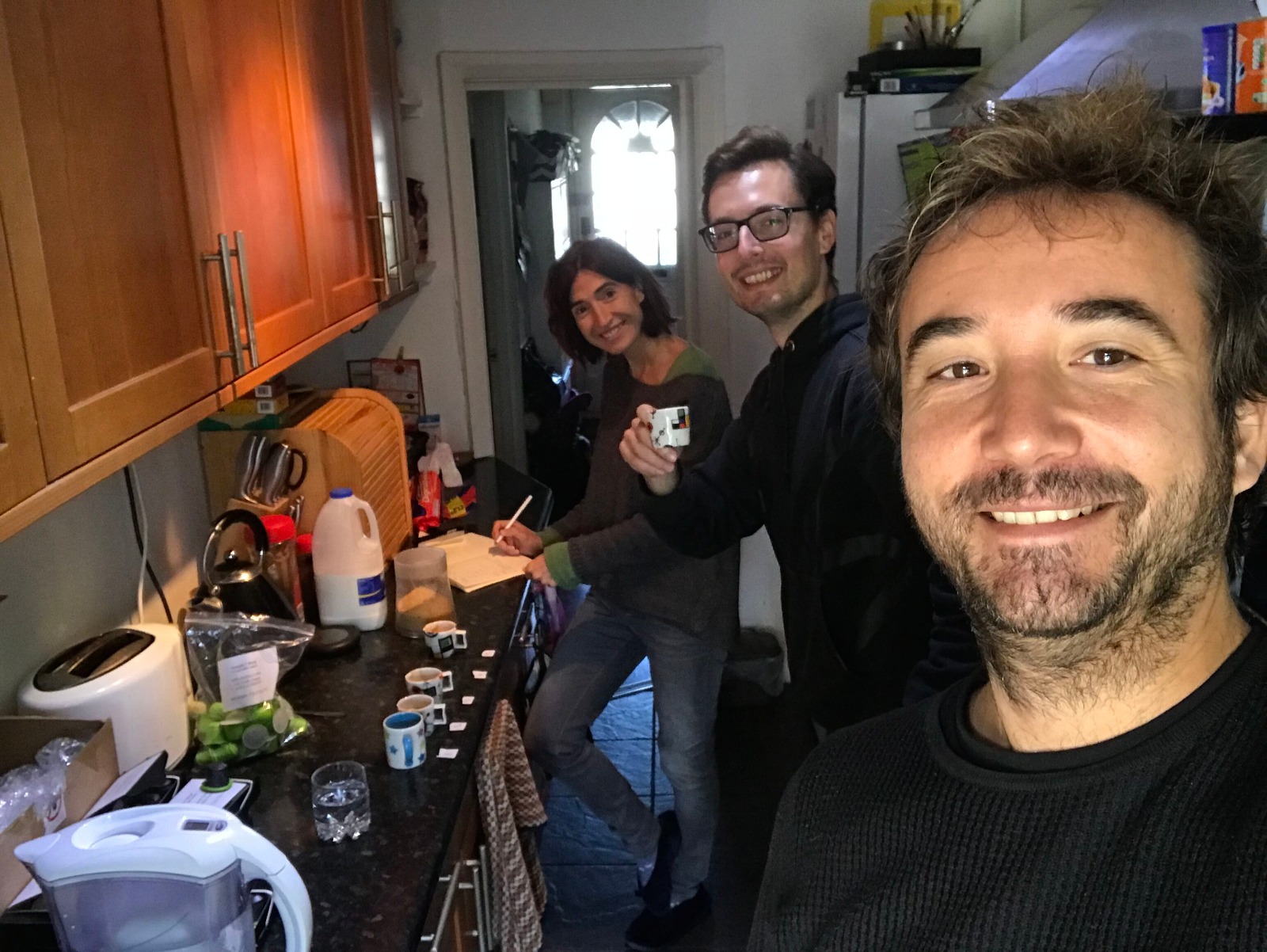
Gemma Guilera, Daniel Hardej, and Mike Dohler are the founders of sustainable coffee brand, Moving Beans Coffee.
“It was just a little bit of serendipity that we chanced upon the news story,” Daniel, 29, recalls. In 2015, America-based Keurig Green Mountain sold more than nine billion of its single-use plastic coffee capsules, The New York Times reports. Not a single one of the nine million pods were recyclable.
According to Daniel, 60 billion coffee pods were tossed in landfills globally in 2020, and this number is forecasted to rise to a whopping 100 billion by 2025. 350 million coffee pods are thrown away in landfills in the United Kingdom (UK) annually, he adds. These discarded coffee pods or capsules would take hundreds of years to break down.
“As researchers, these statistics resonated with us,” Daniel says, noting how complex packaging in conventional coffee pods makes it difficult for processing plants to recycle the coffee pods. “We know that it’s impossible for any company to try and fix the plastic or waste pollution problem once and for all, but what we can do is take a single product that we really like — in this case, coffee — and see what we can do about it.”
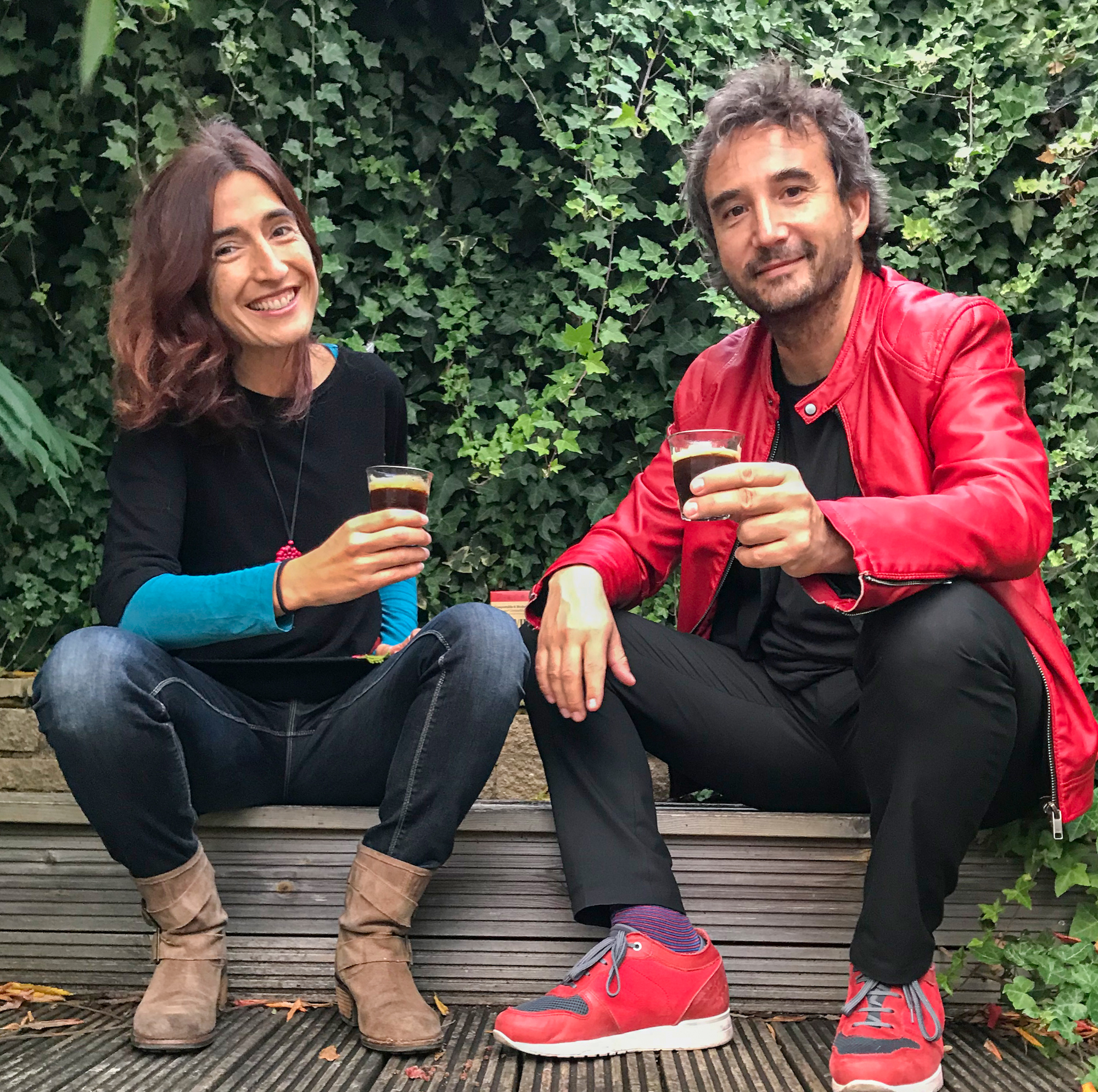
Based in London, founders Mike and Gemma are husband and wife. Daniel, however, is based in Australia.
“It was done without too much thought. We saw this horrendous problem, we realised we had a very balanced team which had the right skills to make it happen, so we just started,” Gemma, 46, adds.
Each with a background in academia — Daniel is an engineer with a Masters in Mechanical Engineering, Gemma, who is married to Mike, is a scientist with a PhD in Chemistry, and Mike, 46, is a professor in Wireless Communications at King’s College London, the trio plunged headfirst into the environmental predicament. Together, they founded Moving Beans Coffee.
Fundamentally, the team had to figure out a way to reduce the environmental pollution and wastage from the disposal of conventional coffee pods. Besides that, Daniel was also perplexed at the substandard quality behind some of the existing sustainable coffee pods in the market. “Some plant-based coffee pods are porous and they allow oxygen to seep through and interact with the coffee grounds. This may cause the coffee to turn stale”, Daniel says. The engineer also realised creating sustainable coffee pods with enough structural integrity and rigidity to withstand the heat and pressure from the capsule coffee machines was a challenge needed to be overcome.
A Passion Project Evolved
At that time, the trio frequently bantered ideas and dug deep into researching sustainable materials that could work as well as getting acquainted with the coffee industry. “We were absolutely clueless,” Daniel, who was 25 and had just completed his graduate school then, confesses. “Looking back, it was daunting.”
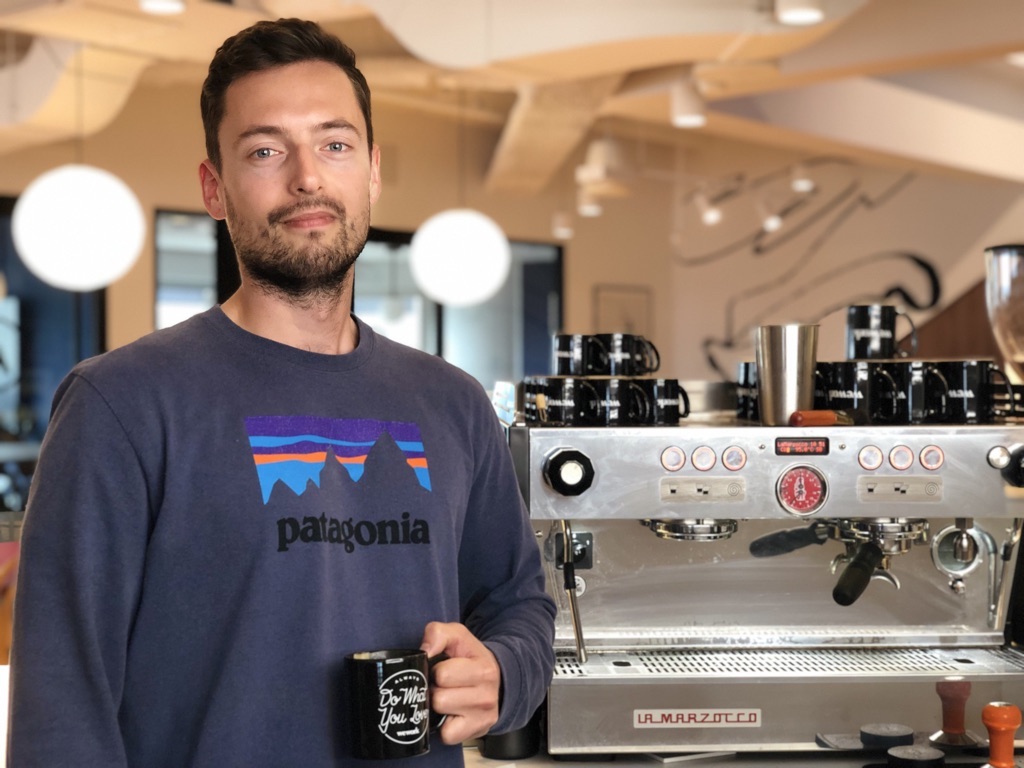
Daniel, then 25, had just completed graduate school when he and the other founders founded Moving Beans Coffee.
Despite graduating in the summer of 2017, Daniel’s priorities were not entirely set on Moving Beans Coffee yet. “We were still researching back then,” he reasons. Instead, he placed his lens on gaining industry experience and got a full-time position as a software engineer. “Don’t get me wrong though, I still worked on Moving Beans on the side,” he laughs.
The same can be said for Gemma, who was working for a government initiative that supported entrepreneurs, and Mike, who has to juggle between teaching, his students, and his other start-ups. “I don’t know how Mike does it. I suppose, he has exceptional time management,” Daniel muses.
Like most start-ups, Moving Beans Coffee struggled with the perennial struggle of securing funding. Daniel had to take a personal loan, his first, from a commercial finance broker, BizBritain, to kickstart things. In the beginning, Moving Beans Coffee was just a mere reseller of other coffee products, but behind the scenes, the trio hustled to develop the brand, find a niche, create a logo and trademark, and research, before scouring for coffee beans and their own materials. “It was just £25,000, and that to me was one of the riskiest things I have done,” Daniel says. “Looking back, we’re really fortunate that things worked out.”
“When it comes to taking big risks, I’d want to take them when I’m young. A little bit of recklessness at that time was fine; there weren’t many things, like having mortgages or raising children, that could impair my ability to work. If anything, I think taking that personal loan also meant that I really believed in the business, and I did!” Daniel elaborates.
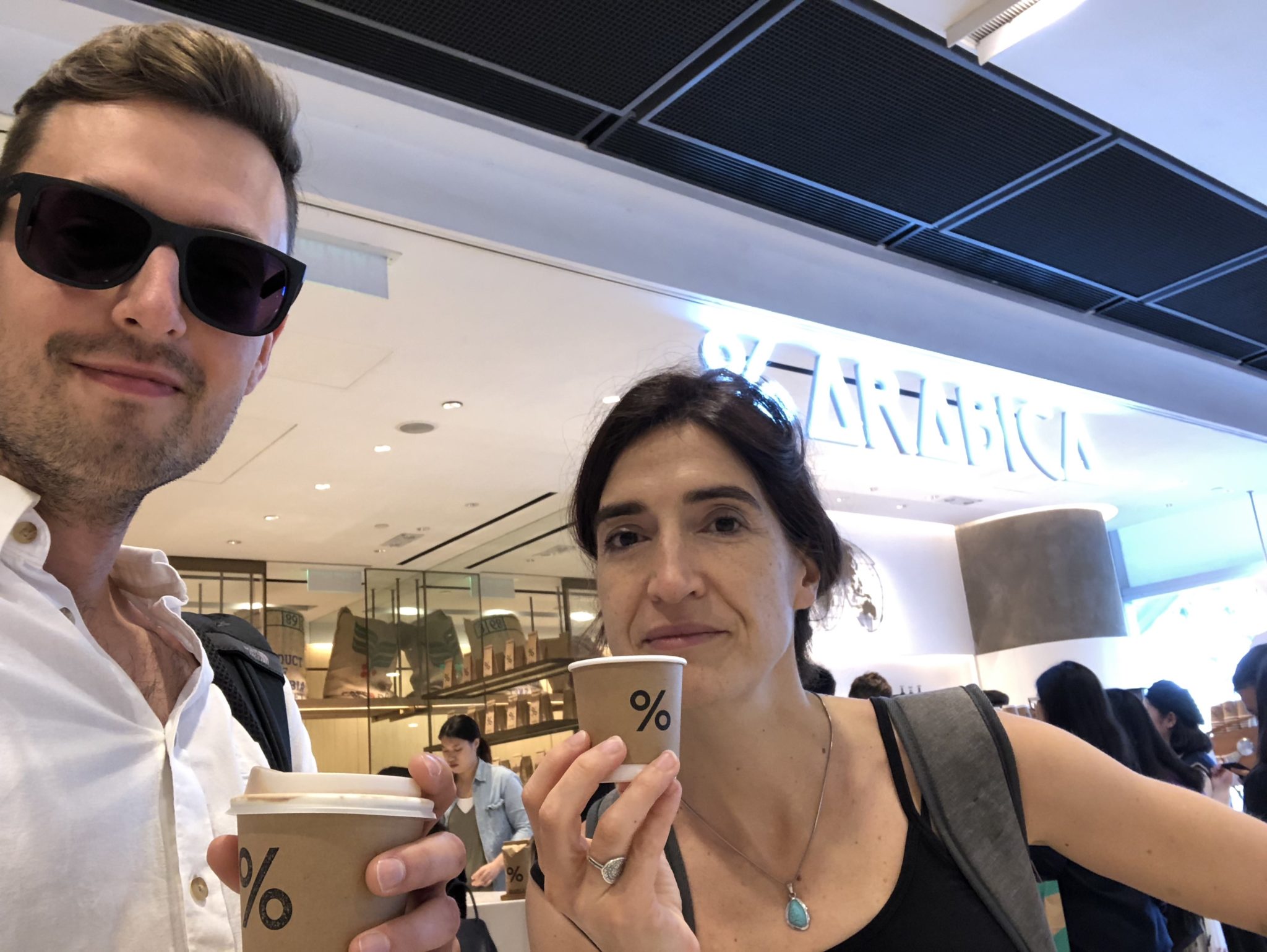
Daniel and Gemma on a coffee tasting spree overseas.
It wasn’t until July 2019 that Daniel shifted his focus onto Moving Beans Coffee. By then, he had accrued a solid one-and-a-half years of work experience, familiarised with the coffee industry, and began feeling the crunch of juggling a full-time gig and Moving Beans Coffee. Staying true to his ethos of taking risk early, he decided to leave his well paying, full-time job as a support engineer. He began getting more involved with campaigns and projects that would furnish the start-up funding. “We started gaining momentum, saw customer loyalty, and that kept me going,” he says wistfully. “It was the best decision quitting my job, albeit abruptly, to focus on Moving Beans Coffee.” 2019 was also the year when Gemma joined Moving Beans Coffee full-time.
For the most part, the trio can be said to possess a symbiotic relationship with one another. At Moving Beans Coffee, Daniel is in charge of the product development, design, and international expansion; Gemma helps with marketing, communications, branding, and material R&D; while Mike handles eCommerce, web developments, and all things digital. Daniel also looks after the development in Australia, where he is based presently, while Gemma and her husband, who are based in London, looks after the UK market.
“I have seen a lot of small businesses because in a previous job I was supporting startups, and I have seen many fail because the founding team members were incompatible,” Gemma says. “Mike, Daniel and I may be based in different countries or have different — but strong — personalities, we have always worked smoothly and professionally, without throwing plates to one another.”
Quality Compostable Coffee Pods
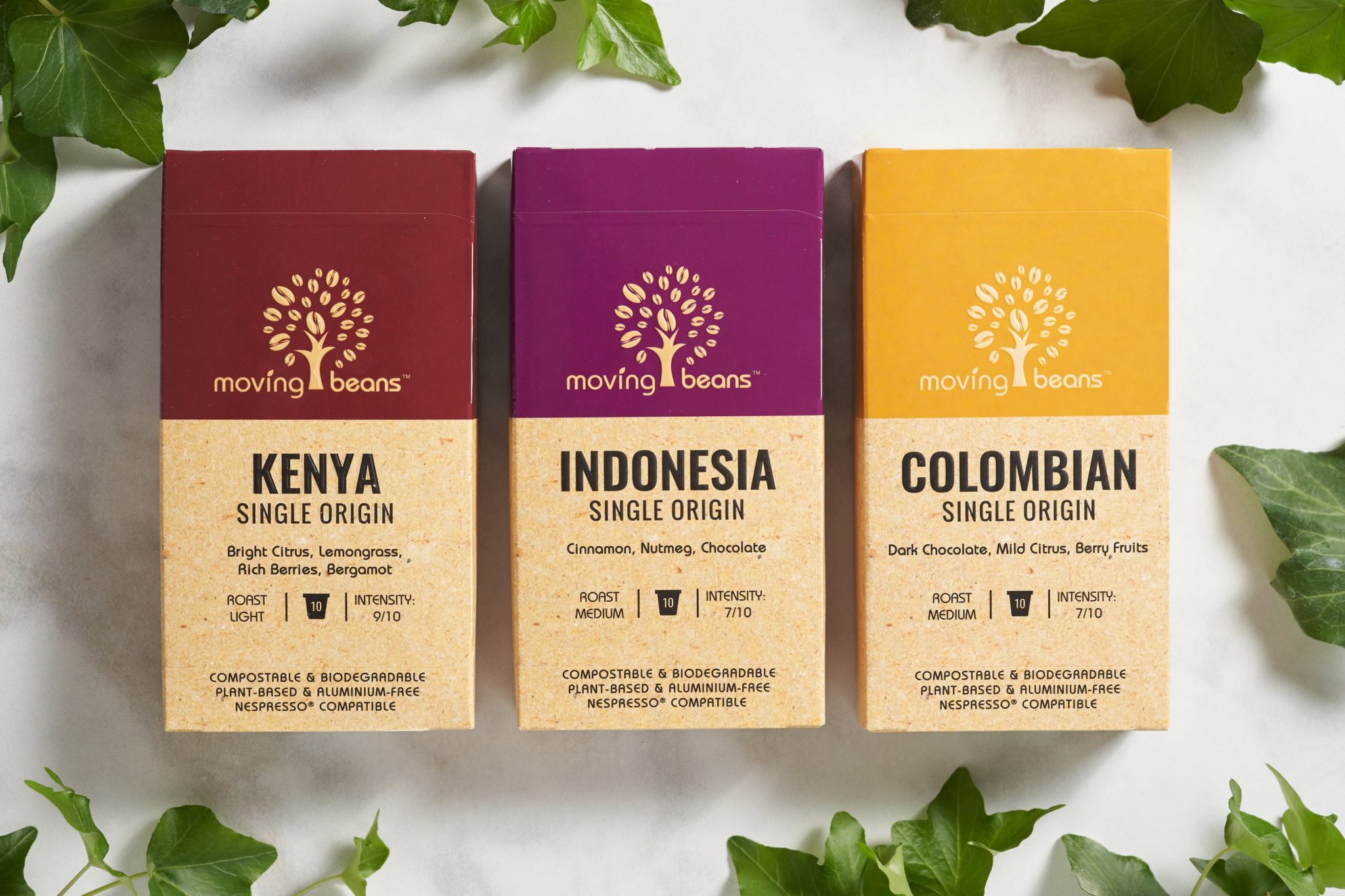
Moving Beans Coffee’s signature blends of coffee.
In April 2018, Moving Beans Coffee released three unique blends of coffee – the Colombian, Kenyan, and their signature Classic Espresso Blend. A year later, the coffee label launched its first line of Fairtrade Moving Beans Coffee, which boasts six different coffees.
All of these coffee pods are compatible with the Original Nespresso Machine and are industrially compostable. This means the used coffee pods will fully decompose into compost under commercial composting conditions, such as regulated high temperature and pressure. It takes 12 to 16 weeks before the composts are formed.
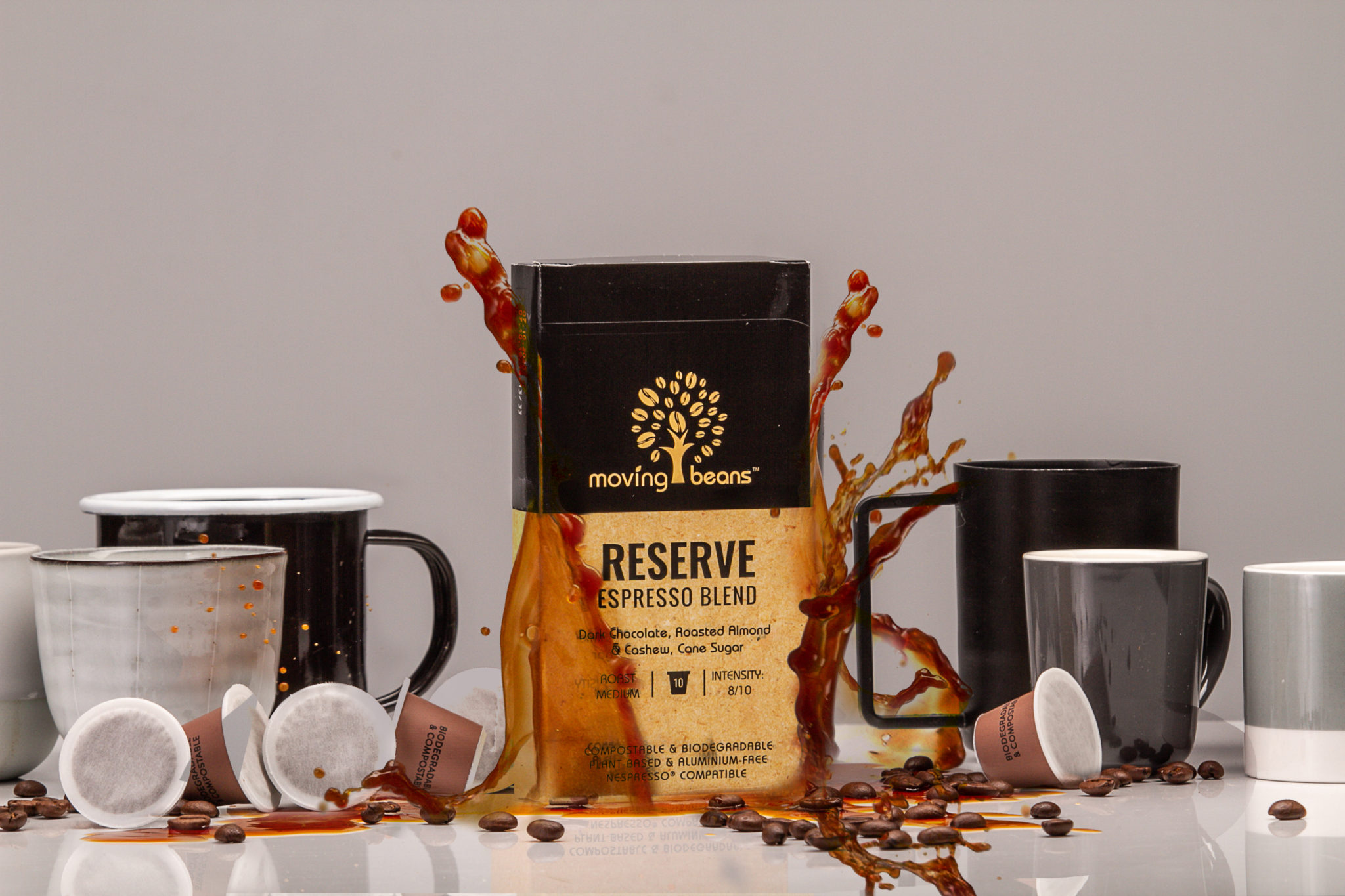
This year, Moving Beans Coffee will be releasing a new range of coffee pods that can be compostable at home or in the garden.
Made using polylactic acid, a widely-used, plant-based material derived from corn starch, beet or cane sugar fibres, the present range of coffee pods from Moving Beans Coffee does not contain aluminium or hydrocarbon plastic. “In other words, they are 100% biodegradable and can be safely thrown with your food waste,” Daniel adds.
Daniel does not feel guilty drinking from a conventional coffee pod. “I didn’t have the habit of drinking from those conventional coffee pods frequently in the past,” Daniel explains. “But since we launched, I have been using our products even more frequently. And there’s not much to be guilty about.”

Daniel (left) is an engineer, while Mike (right) is a professor at King’s College London.
Last year, the team sold over 1 million coffee capsules, a stark increase as compared to that of the following years. Since the company’s inception, the team has sold over 1.5 million coffee capsules and established a cult following across the UK, Australia, Hong Kong, New Zealand, and parts of Southeast Asia, including Singapore. Later this year, the team will expand towards the European market.
Daniel has since repaid half of his personal loan through his own earnings from his time working as an engineer. “The remainder will come from Moving Beans Coffee,” he says. The company’s profits allowed him and his team to be even more ambitious and flexible and to take on bigger projects.
2021 is turning out to be a busy year for Daniel and his team. “We are really excited about what we have coming up,” Daniel says. The trio has recently developed a new material for its coffee capsules. This unique material took an entire year to develop and is made using clean agricultural material, comprising rice and coffee husks, bamboo and natural plant resins. The new range of coffee capsules, which will be released later this year, boasts better sustainability credentials and can be compostable from one’s home or garden. The start-up will also be collaborating with non-profit social enterprise, Change Please, to prevent homelessness through offering jobs to those at risk and donating parts of their profits.
“We know that changing people’s consumption habits will take a long time, and there are organisations and initiatives encouraging people to be more sustainable,” Gemma adds.
She says, “Which is why at Moving Beans Coffee, our goal is not about changing habits, but to make existing ones even more sustainable!”


